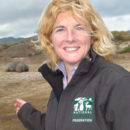We have much more to do and your continued support is needed now more than ever.
It Never Rains in California: On the Front Lines of the ‘Mega-drought’
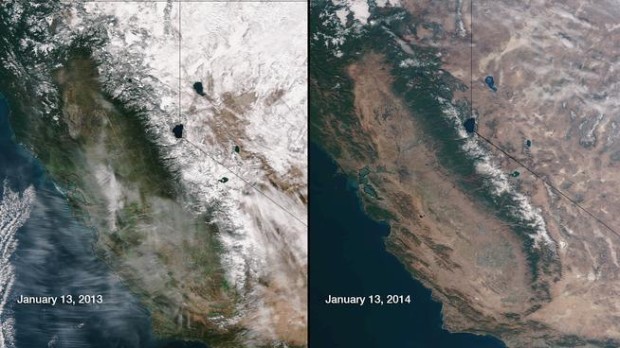
“We can’t make it rain, but we can be much better prepared for the terrible consequences that California’s drought now threatens, including dramatically less water for our farms and communities and increased fires in both urban and rural areas,” said Governor Brown. “I’ve declared this emergency and I’m calling all Californians to conserve water in every way possible.”
Where’s Winter?
For those of us living in California, the day-to-day experience proves just as frightening as the official statistics. Wildfires burning in the middle of winter. Starving deer searching for any sign of vegetation. Brown, parched hillsides that are normally decorated in a lush, green coat. Reservoirs resembling drained bathtubs. And a sad, almost dry Yosemite Falls, drizzling down the last remnants of a meager snowpack.
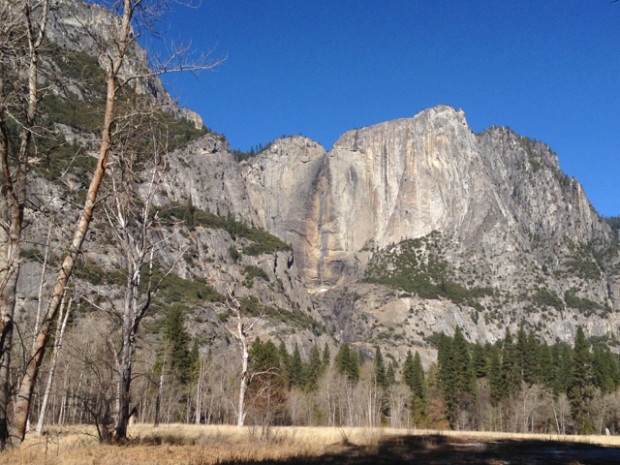
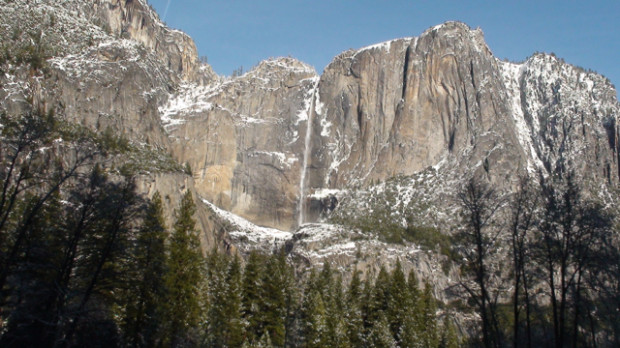
Something is Bugging Me
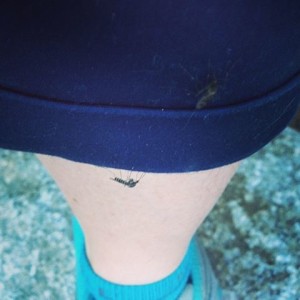 For me, being attacked by mosquitoes at the base of Yosemite Falls, however, ranked as the starkest reminder of our changing climate. I took a hike on the Yosemite Falls trail last week, and as I stood gazing mournfully at the lack of snow and ice, a swarm of mosquitoes surrounded me. At first, I became utterly disoriented. “It can’t be mosquitoes because it’s January, wait no, these are mosquitoes biting me.” Investment tip: put your money in bug repellent as we’re going to need it year-round in the Sierra Nevada.
For me, being attacked by mosquitoes at the base of Yosemite Falls, however, ranked as the starkest reminder of our changing climate. I took a hike on the Yosemite Falls trail last week, and as I stood gazing mournfully at the lack of snow and ice, a swarm of mosquitoes surrounded me. At first, I became utterly disoriented. “It can’t be mosquitoes because it’s January, wait no, these are mosquitoes biting me.” Investment tip: put your money in bug repellent as we’re going to need it year-round in the Sierra Nevada.
Mosquitoes may be thriving and enjoying the warm weather, but other wildlife are not so fond of this ‘Junuary.’ Bears have begun emerging from hibernation with empty stomachs, only to find no natural food, which can lead to scavenging in residential areas. As Chris Clarke wrote recently in his ReWild blog, residents in Lake Tahoe have reported bears raiding trash cans, not a normal concern during the winter months. “Black bears eating garbage and roaming around populated areas near Lake Tahoe when they should be hibernating is a result of the severe drought in California and Nevada,” said Chris Healy, public information officer with the Nevada Department of Wildlife.
One adventurous bear took advantage of his early wake-up call and hit Tahoe’s famous slopes, joining a World Cup run at Heavenly Resort on January 10. The skiers paused to watch this amazing spectacle until the bear dashed into the nearby woods. It’s a good thing the bear got his skiing in early—with a 17% of normal snowpack this could be a short season for winter sports.
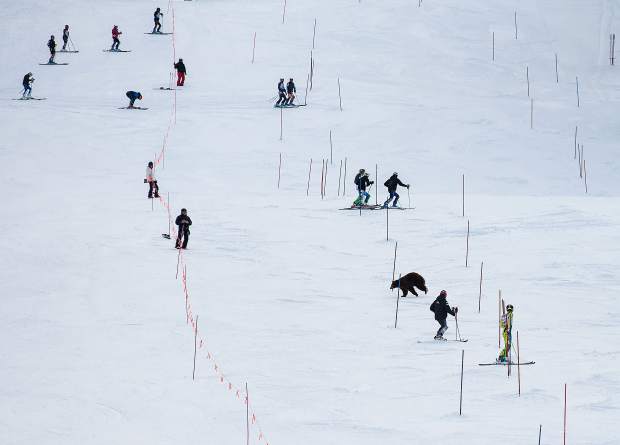
Our New Climate Reality
Decreased snowpack, increased wildfires, drought, skiing bears—all of these trends are what climate scientists have been predicting for years will occur as the result of a warming planet (okay, not the skiing bears but someone should have thought of that.) There is a big difference between weather and climate, and no single weather event or even a single year of weather data can be directly attributed to climate change. Yet the long-term patterns are starting to support the predictions. In a recent Mother Jones story, scientists noted some of the California statistics are bordering on unprecedented. University of California-Merced hydrologist Roger Bales observed, “We’re heading into what is near the lowest three year period in the instrumental record for snowpack.”
Read more about the impacts of climate change on wildlife in the National Wildlife Federation’s new report series, Wildlife in a Warming World.
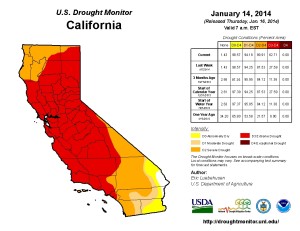 It never rains in California—at least not this year. The popular song, however, has a next line that many are unfamiliar with, but which we Californians know so well: “but girl, don’t they warn ya? It pours, man, it pours.” When it rains, it does pour, in multi-day storms that often have newcomers thinking of building arks. January and February are usually the wettest months in the Golden State, and we’re all used to wishing for a March Miracle during dry years, when the sky opens up in what seems like endless days of rain and snow. William Peterson with the National Weather Service in Hanford wishes for the same. “Hopefully we can have a wet second half of winter, making a lesser impact to our everyday lives.”
It never rains in California—at least not this year. The popular song, however, has a next line that many are unfamiliar with, but which we Californians know so well: “but girl, don’t they warn ya? It pours, man, it pours.” When it rains, it does pour, in multi-day storms that often have newcomers thinking of building arks. January and February are usually the wettest months in the Golden State, and we’re all used to wishing for a March Miracle during dry years, when the sky opens up in what seems like endless days of rain and snow. William Peterson with the National Weather Service in Hanford wishes for the same. “Hopefully we can have a wet second half of winter, making a lesser impact to our everyday lives.”
Even if Mother Nature saves us this year with a deluge of late season precipitation, the general agreement among experts is that California should prepare for the conditions this year becoming the new normal. Juliet Christian-Smith with the Union of Concerned Scientists issued a warning in Salon, “The current historically dry weather is a bellwether of what is to come in California, with increasing periods of drought expected with climate change. Because increasing demand and drought are straining our water resources, we need to adopt policies that address both the causes and consequences of climate change.”
Felice Stadler, NWF’s climate and energy program, agrees this should be a call to action. “We need to be divesting ourselves of fuels that drive climate change and exponentially increase our investments in clean energy like solar and wind. If we continue on our current path, droughts like the one in California will become more common and widespread in the west.”
I’ll stock up on bug spray. Sierra ski resorts better start designing runs for bears. And all of California should finally begin having a serious discussion about radical changes to our water and energy use. If drought is the new “black,” this has significant implications for a state with almost 40 million people and a large agricultural base. This drought might be a warning from the ghost of California’s future, a message we should all take climate change, very, very seriously.
Take Action
![]() Help protect California wildlife, and wildlife across the country, from climate change. Tell the Environmental Protection Agency you support strong limits on the carbon pollution fueling climate change.
Help protect California wildlife, and wildlife across the country, from climate change. Tell the Environmental Protection Agency you support strong limits on the carbon pollution fueling climate change.
And follow NWF California on Facebook for more great wildlife stories and photos from across the Golden State.

